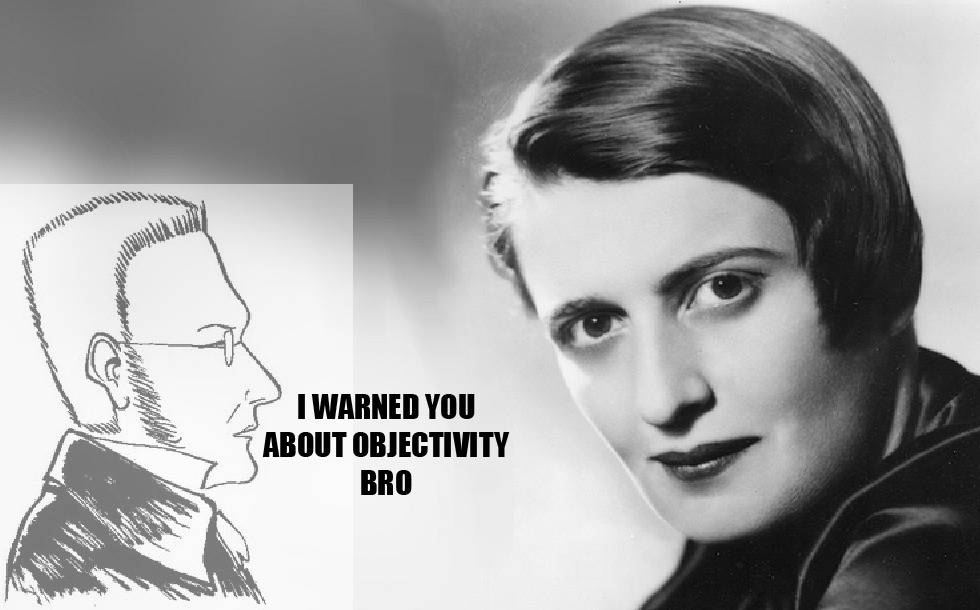I think I have the answer: good philosophy - actually good research in any field - doesn't just prey on one's fears or vulnerabilities. Good philosophy really makes you think; it especially makes you question and think critically. Ayn Rand's philosophy fails to really do any of this. There is so much emphasis in her philosophy on selfishness as a 'virtue' and how flawed conventional values are without any solid argument to support either of these notions that it is hard to say that it really makes one think at all.
Now, one could say that it is simply because her philosophy questions common values that it hasn't received academic acclaim; it in fact really does "make you think." But consider the theory of 'moral luck' by Thomas Nagel. Nagel's argument is that the way one behaves morally is largely a matter of luck or chance - a simple roll of the dice. In essence, it depends on one's genetics and the environment in which they were raised. For instance, if someone were raised in Nazi Germany, they would have a very different outlook on the Jews, and therefore racism, than if they were raised in 21st century North America. And, in people with ASPD - a trait related to criminal activity - evidence shows that identical twins often share the trait genetically. The notion then of luck should apply to almost all moral qualities. We therefore should not punish or reward people for their moral behaviour at all!
Now, I have an argument against Nagel that I'm not going to get into. But you can see the difference between Ayn Rand and Thomas Nagel: even though Nagel presents an unpalatable conclusion, he at least makes you think critically about the issues. I don't feel one can say the same thing about Rand. Her philosophy seems to be just one personal attack after another against human ethics and human emotion; she does not seem to have any real justification for asserting these beliefs.
In any event, this is just my opinion. I am open to hearing yours...



 Reply With Quote
Reply With Quote


